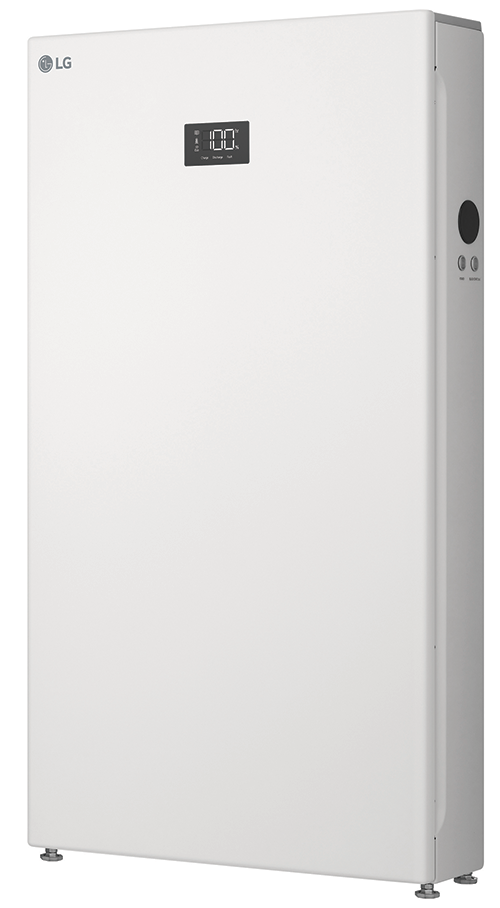It’s important for installers to confirm they’re providing the latest information regarding the Inflation Reduction Act to customers, which is another reason why staying up to date on industry trends is critical.
How Installers Can Communicate the Benefits of Energy Storage Systems
Q&A with Chris Canfield, Director of Sales | LG Electronics USA
Tell us about yourself and your role with LG Electronics Energy Storage Systems
My name is Chris Canfield, and I am the director of sales and marketing for Energy Storage Systems at LG Electronics USA. Since joining LG Electronics, I have assembled an industry-leading sales team composed of seasoned talent, well-versed in energy storage and renewable energy. The team is working under the leadership of Senior Vice President Chris Ahn, who heads the LG Electronics USA business division that encompasses LG Electronics ESS.

Why is it so important for installers to stay up to date on national trends and federal regulations and what are some of the ways they can do this?
It’s critical for installers to stay up to date on national trends and federal regulations to help customers make informed decisions regarding their energy storage systems. ESS trends are evolving daily, with state and federal policies dictating different rules, regulations, and incentives available for energy storage systems. As an installer, it is important to communicate available incentives clearly and effectively to your customers on both a national and local level. Consistently reading and following trade publications (like this one) helps you keep up to date on the latest industry news.
What are the key benefits of energy storage systems that every installer should communicate to customers to help them make a sound decision?
An ESS offers many benefits to both the customer and the planet. When communicating with customers, aim to highlight the cost savings they will see from installing an energy storage system. These include tax incentives, and of course, storing energy for later use. Installers will want to communicate how these are beneficial during extended power outages, and during peak hours of consumption when energy prices are the highest.
According to NREL, electrification of end-use services in buildings coupled with decarbonization of electricity generation are key pathways to achieving a low-carbon future in the United States. Decarbonization/electrification are increasingly important topics to many customers, so installers will want to emphasize how energy storage systems use clean energy, and thus help reduce carbon emissions.
What tips do you have for an installer to building better relationships with manufacturers and suppliers?
One method to developing better relationships with manufacturers and suppliers is through maintaining close communication. As they interact with the consumer, they can provide consumer trends and any regional regulation changes or code requirements by the AHJ (Authority Having Jurisdictions). Often the manufacturer will reach out to installers when planning new-generation products and may request feedback on a test installation of new products.
Additionally, installers can sign up for communication with manufacturers. Many manufacturers will send information on new products, product updates, software, webinars, and technical papers.
How do you suggest installers relate information about the Inflation Reduction Act to potential customers?
It’s important for installers to confirm they’re providing the latest information regarding the Inflation Reduction Act to customers, which is another reason why staying up to date on industry trends is critical. This law will permit homeowners to claim a 30 percent tax credit on eligible energy storage installation projects (when filed with the IRS through 2032). The residential battery systems tax credit is currently uncapped. Since the current market has such a demand for energy storage systems, there may be additional incentives at both a state and federal level. Customers will appreciate your knowledge of the changing marketplace to help save them the most money in the long run.
What are the key points for installers to make for customers concerned about the ease of installation, integration, and maintenance of energy storage systems?
It is wise for installers to communicate what we call “The 3 Es” – Ease of use, ease of installation, and easy on the eye. Boiling down these three points helps get across the benefits of energy storage systems, while also highlighting the installation will not be a hassle to the homeowner. For example, some energy storage systems are attractive to look at, such as Home 8 – and embody sleek, sophisticated, space-saving design that can easily be tucked away in a garage, or outside of the home, alleviating homeowners fears of drilling into a wall or unsightly boxes in a common gathering space.

Chris Canfield is the Director of ESS Sales at LG Electronics USA. The LG Electronics Energy Storage Systems business represents a fast-growing new area for LG in the United States, leveraging the company's renewable energy expertise to unlock value for customers and plug into the new era of sustainability. Based in Englewood Cliffs, N.J., LG Electronics USA Inc. is the North American subsidiary of LG Electronics Inc., a $63 billion global innovator in technology and manufacturing.
The content & opinions in this article are the author’s and do not necessarily represent the views of AltEnergyMag
Comments (0)
This post does not have any comments. Be the first to leave a comment below.
Featured Product

